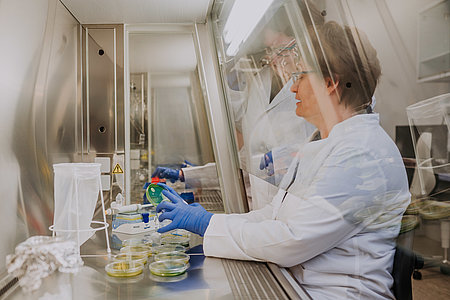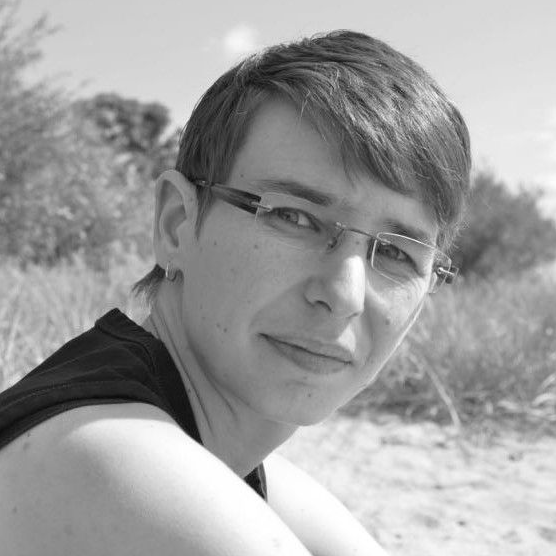Microbiology Lab
The laboraty is equipped with modern facilities to address scientific questions in the field of 'microbial diversity in bioeconomic production systems'.
The overall aim is to assess the impact of existing and innovative agronomic management measures, food technology and bioprocess engineering processes on microbial diversity in order to derive optimised/efficient management strategies/processes for a sustainable production of biomass, healthy food and energy, as well as to reduce undesired effects.
On a total area of more than 900 m2 on two floors, more than 20 specially equipped laboratories provide modern workspace for our research.
The laboratories are approved according to BioStoffV, IfSG and TierSeuchEV regulations for working with microorganisms of risk group 2 and according to GenTG/GenTSV for genetic engineering work of safety level 1.
The spectrum of methods ranges from the isolation, cultivation and characterization of aerobic and anaerobic microorganisms (archaea, bacteria, fungi) to the detection of complex and dynamic microbial communities by qPCR (quantitative PCR), TRFLP (terminal restriction fragment length polymorphism), DGGE (denaturing gradient gel electrophoresis), MALDI-ToF-MS analysis and 16S rRNA gene-amplicon sequencing, genome and metagenome sequencing (Oxford Nanopore Technology).
In addition, the efficacy of non-thermal decontamination methods (e.g. plasma, high pressure, PEF) for the reduction of microbiological model systems as well as naturally occurring microbiomes (food and feed associated) is determined by conventional microbiological analyses or by flow cytometry at the single cell level.
Lab equipment:
- Anaerobic workstation Whitley MG 500
- Laser scanning microscope (Leica) as well as light and fluorescence microscopes
- Flow cytometer CyFlow ML (Sysmex Partec GmbH) and Cytomics FC500 (Beckman Coulter GmbH), Multisizer™ 3 Coulter Counter®, (Beckman Coulter GmbH)
- MALDI-ToF MS, (Shimadzu Germany GmbH)
- Pulsed field gel electrophoresis (PFGE), denaturing gradient gel electrophoresis (DGGE), capillary electrophoresis system (TRFLP)
- Sequencing (Oxford Nanopore Technologies)
- Equipment for non-thermal hygienic treatments (e.g. plasma process and hydostatic high pressure)



